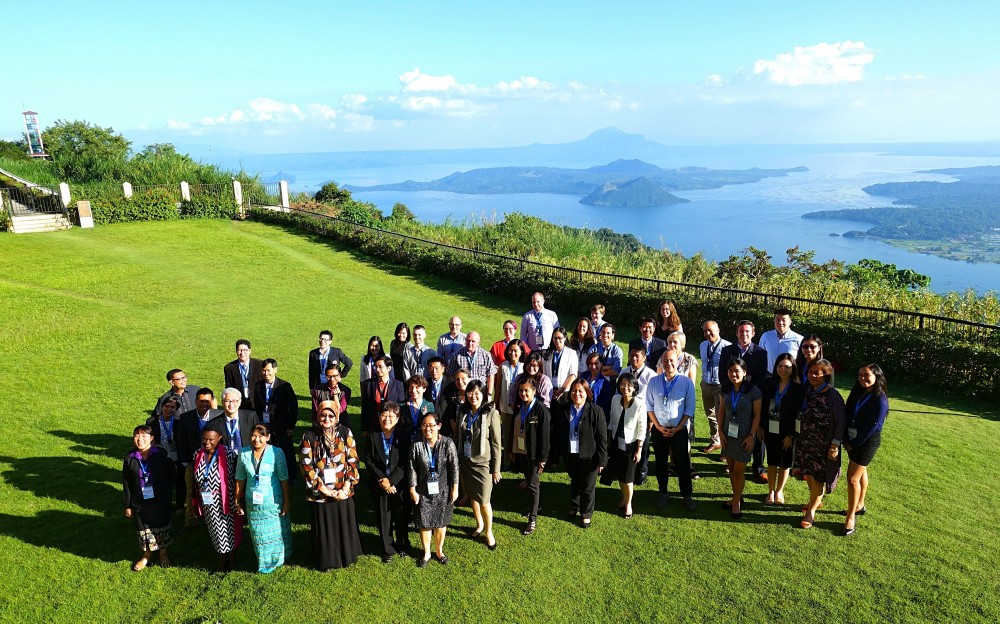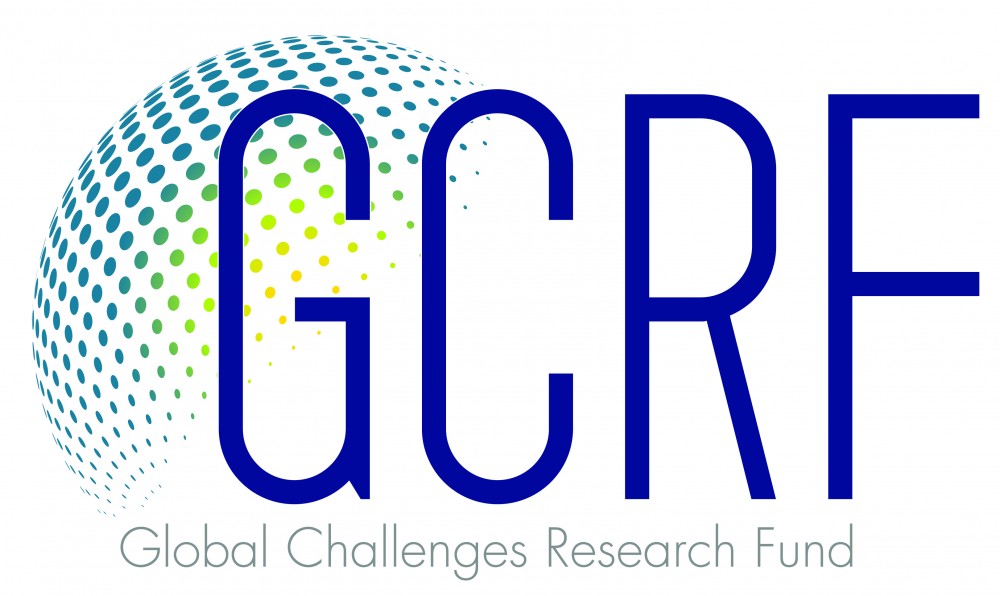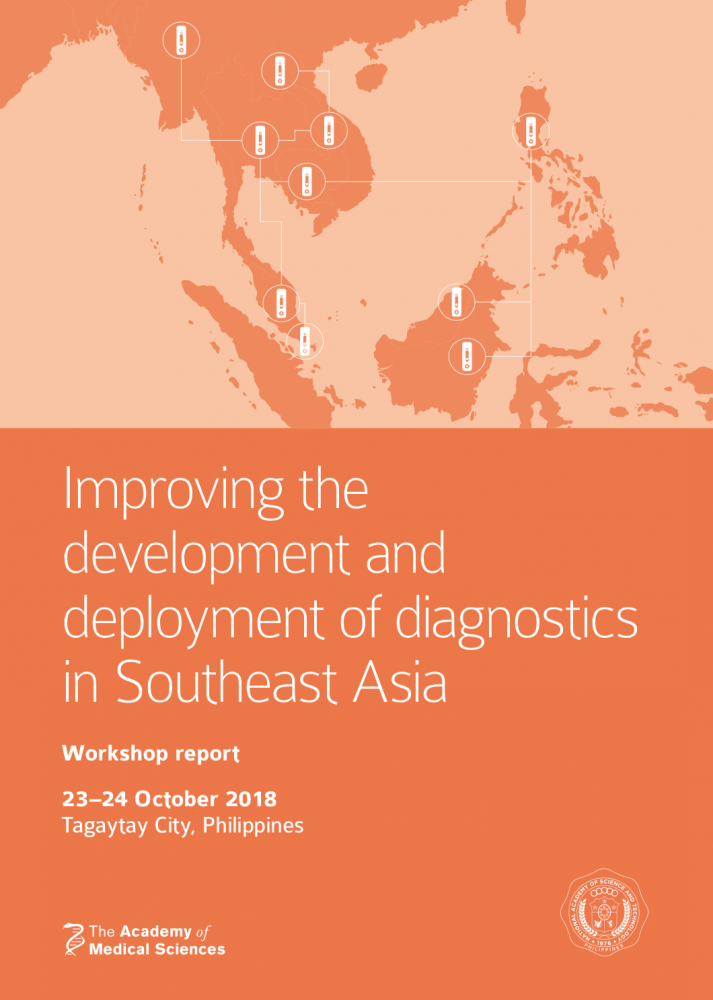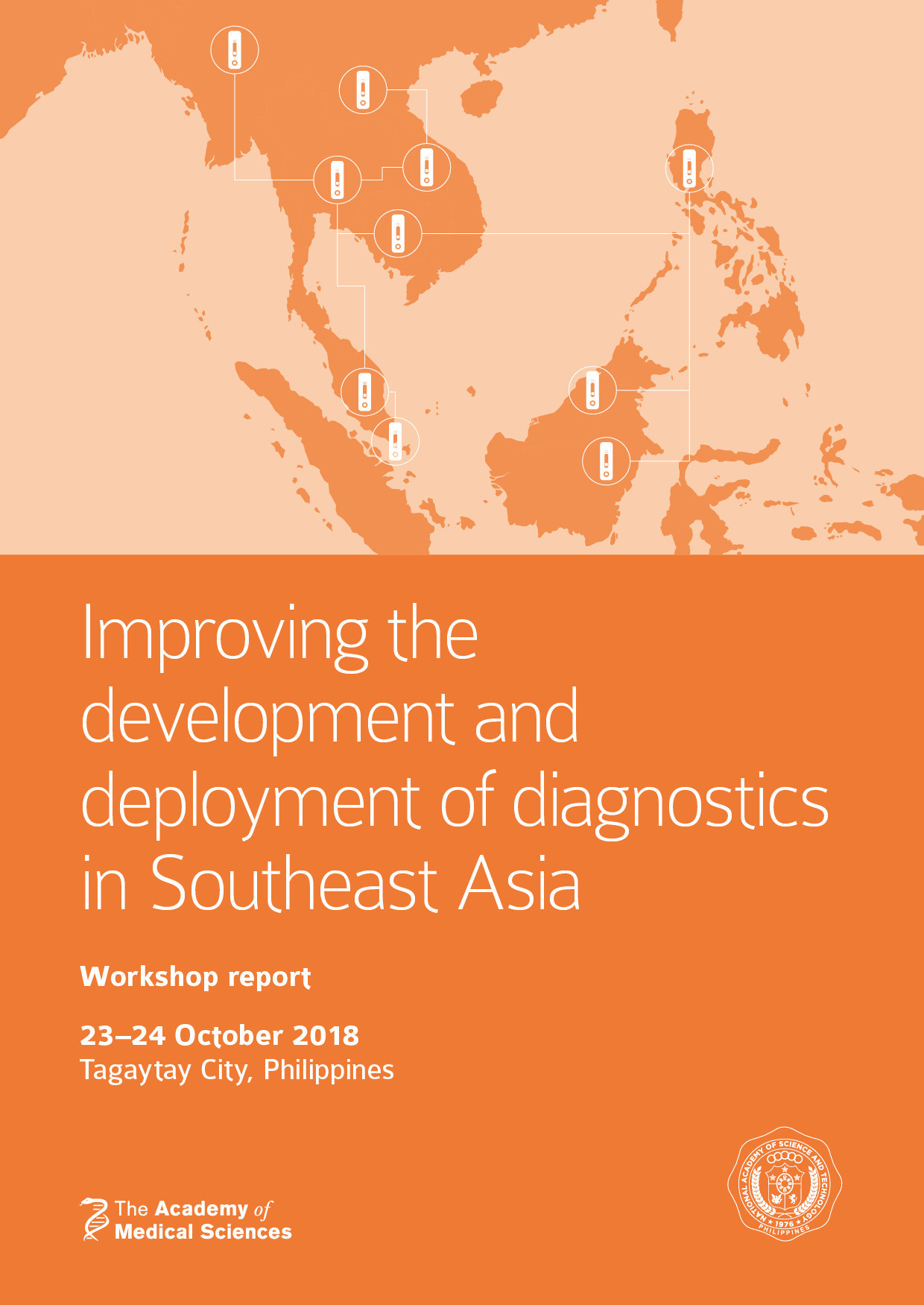The Academy of Medical Sciences, in collaboration with the Philippines National Academy of Science and Technology (NAST), convened a policy workshop on rapid diagnostic tests in South East Asia in Manila, Philippines on the 23-24 October 2018.
Status: CompletedImproving the development and deployment of rapid diagnostic tests in South East Asia
The Academy of Medical Sciences, in collaboration with the Philippines National Academy of Science and Technology (NAST), convened a policy workshop on rapid diagnostic tests in South East Asia in Manila, Philippines on the 23-24 October 2018.
A meeting report was produced and disseminated to UK and LMIC stakeholders in South East Asia.
The report can be downloaded from the downloads tab on the right hand side of this page or by clicking on this image.
RDTs offer a significant opportunity to improve healthcare provision in low and middle income countries, for infectious and non-communicable diseases. They are revolutionising how disease is diagnosed and treated, and are helping to deliver higher standards of healthcare and greater efficiency across public and private health care sectors as well as at the community level. For RDTs to be optimally useful they need to be readily available, perform well and health workers who use them must be trained appropriately. Achieving this is dependent on barriers to development and deployment being identified and addressed, and all members of the community working collaboratively to support the process from discovery to deployment.
Rapid diagnostic tests hold enormous promise in the battle against infectious disease in LMICs. Multiple diagnostic tests have been developed for many pathogens, including those primarily affecting LMICs. Good progress has been made in the implementation of rapid tests for several infections, including HIV, malaria and tuberculosis (TB). South East Asia has experience a number of outbreaks of infectious diseases such as bird flu (H5H1) in Kong Kong, SARS outbreak in Southern China, and chickungunya in India, other infectious diseases such as Malaria are endemic to the region. Point-of-care tests could also help to address issues with laboratory infrastructure, which is poorly resourced in many LMICs. Being largely autonomous, point-of-care rapid tests can provide effective diagnostic services even in settings with limited laboratory facilities.
In 2016, the Academy of Medical Sciences (AMS) held a workshop on ‘Improving the development and deployment of rapid diagnostic tests in LMICs’. The findings of the workshop examined a range of barriers that are limiting the development and deployment of rapid diagnostic tests, and discussed possible ways in which these barriers might be overcome. Highlighted barriers included lack of financial investment, insufficient prioritisation on a national level, the challenging requirements of diagnostic tools in LMICs, complex and heterogeneous regulatory environments, lacking quality assurance systems, ensuring the involvement of both the public and private sectors and the fact that many RDTs are only designed to diagnose a single disease causing agent.
This two-day workshop of key stakeholders from South East Asia and the UK stimulated thinking around diagnostics in the region focusing on the long term objective to make diagnostic technology accessible and usable for all. Through this workshop we moved beyond the approach of looking at only communicable or non-communicable diseases and to look at the patient holistically rather than just the condition, building on the AMS multimorbidity report ‘Multimorbidity: a priority for global health research’.

Click here to find out more about our other GCRF workshops and read the workshop reports.

This workshop is funded by the Global Challenges Research Fund that aims to support cutting-edge research that addresses the challenges faced by developing countries. Visit our GCRF webpage to read more about the fund.
Key contacts
Elizabeth Bohm
Head of International
Tel: –
View staff bio
